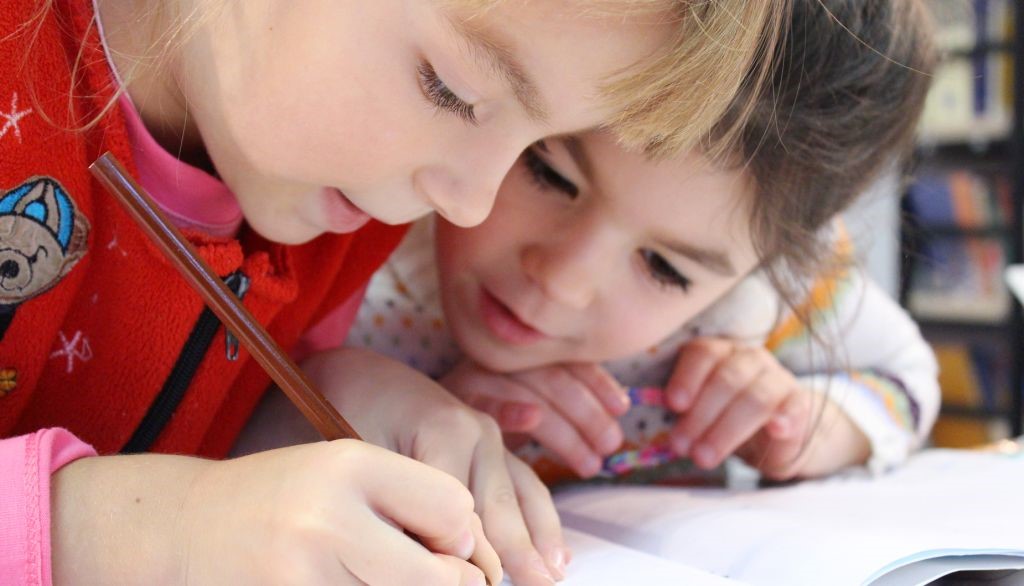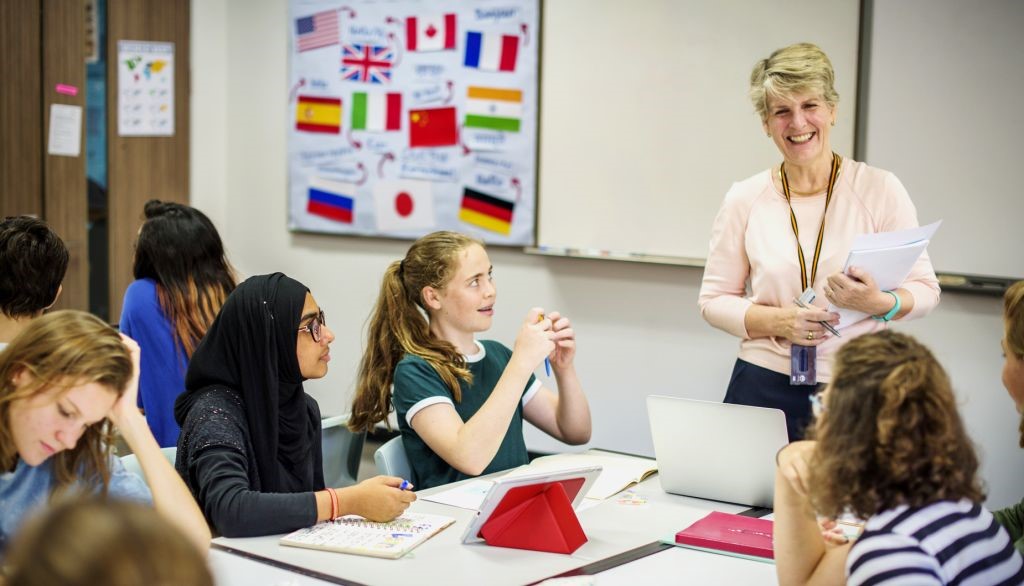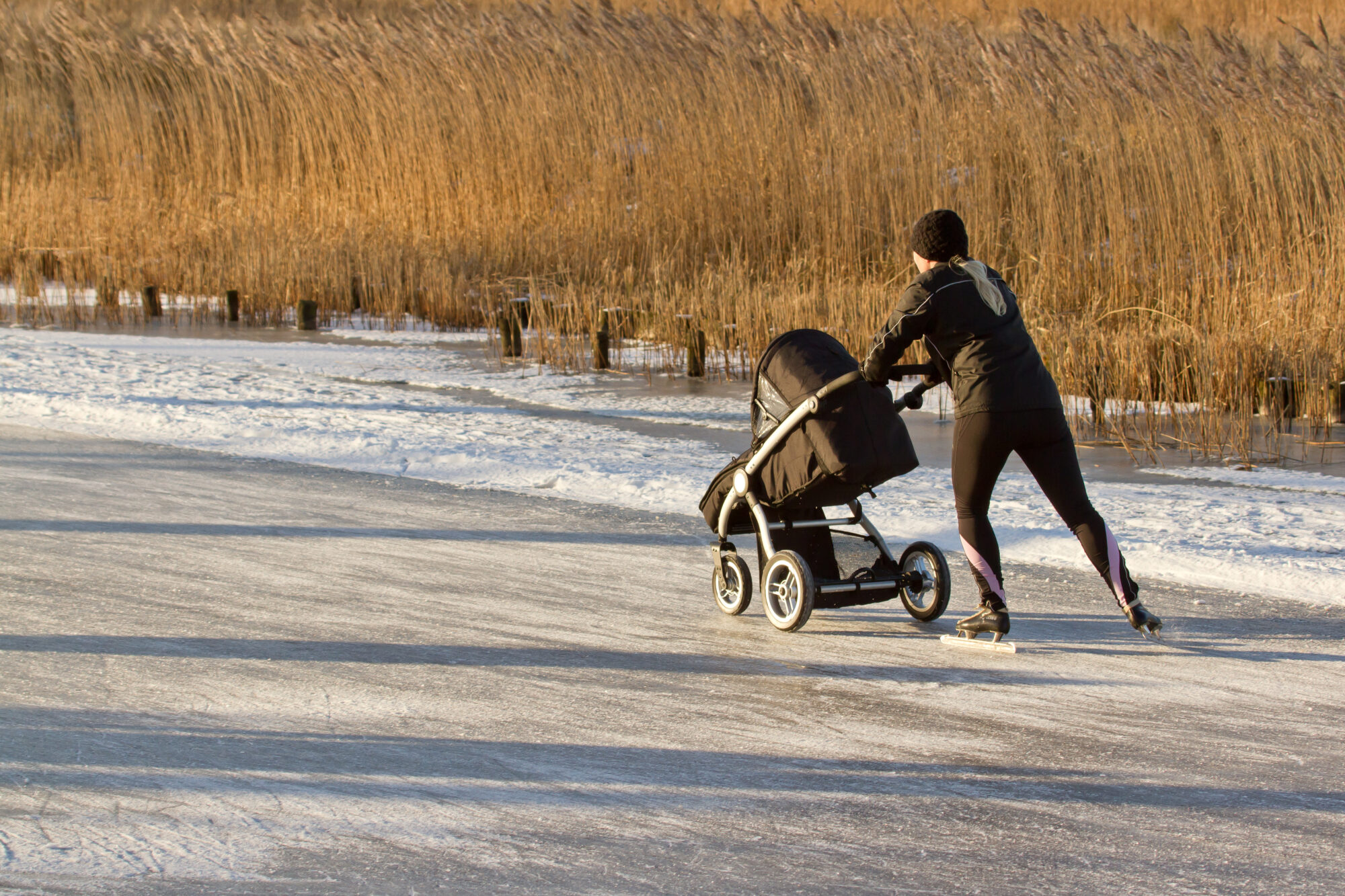Schooling in TopDutch
Dutch, international or bi-lingual? Religious or Montessori? Academic or vocational? There’s a great school for every child in the TopDutch region. Learn about how to choose the right school for your family with our guide to schooling in the Northern Netherlands.

Dutch or international school?
Deciding on a school for your child depends on a number of factors. Firstly, an international or Dutch school. If you decide on a Dutch school, we facilitate newcomers with immersion classes that can help children transition to the Dutch language and culture for a year or two before starting formal Dutch school.
Most new arrivals in the TopDutch region make the international/Dutch decision based on factors such as the age of their children, how long-term the move is going to be and their financial situation.
Dutch education system
Mandatory schooling in the Netherlands starts in elementary school (basisschool). Children may start at the age of four, but it is only mandatory from their fifth birthday. Which school your child attends is entirely your choice, we don’t have catchment areas. Instead, we have schools based around different social, educational or demonotational ideologies, which are divided into three main sections; public schools (following the state curriculum), denominational particular schools or confessioneel bijzonder onderwijs (adhering to different religious foundations), and general particular schools or algemeen bijzonder onderwijs (adhering to different educational concepts such as Montesorri or Waldorf).
The vast majority of schools in the TopDutch region are state schools, even our royal family attend them (fun fact: Queen Maxima was registered official nit-checker at the princesses’ elementary school)! While these are free, it is common practice for schools to ask for a donation from their parents at the beginning of the school year.
Elementary school
Elementary schools have eight grades (groepen) which are generally completed at the age of 12, although occasionally students skip or retake a year if it’s considered in their best interests. At the end of grade 8, students take a final, standardized test which is used, alongside the advice of their teacher, to indicate which type of high school they go to.

High school
The length and style of high school is based on a student’s academic needs and abilities. There are three levels of high school:
VMBO
Voorbereidend Middelbaar Beroepsonderwijs
- pre-vocational secondary education
- 4 years
- qualifies students for MBO tertiary education, which is further vocational schooling ending in a diploma but not bachelor/master level
HAVO
Hoger Algemeen Vormend Onderwijs
- higher-general secondary education
- 5 years
- qualifies students for HBO higher education (universities of applied sciences)
VWO
Voorbereidend Wetenschappelijk Onderwijs
- pre-university education
- 6 years
- qualifies students for WO higher education (research universities)
- two further sub-sections: Atheneum and Gymnasium
The choice at the age of 12 for the type of school a child attends does not limit them to one route, often students can choose to change route, however it may take longer for them to graduate. In all of the schools, English is a mandatory part of the curriculum.
International schools
In the TopDutch region we have a choice between both state-funded and private international schools at elementary and secondary school level. English is the main language of instruction in all of the international schools in the TopDutch region, however of course there is a lot of support to help children that do not yet speak much English and Dutch is always taught as a second language.
State-funded international elementary schools cost between €3,600 to €6,600 per year and for state-funded international secondary schools costs range from €5,500 to €8,500 yearly. Private international schools can cost up to €27,000 per year.

Elementary school
There are currently two international choices in the region at elementary level.
- GSV International Department (Groningen) is a partially state-funded choice for English-taught education. They follow the British Curriculum for Primary Schools, combined with the International Primary Curriculum. Within the wider school is also a bi-lingual department, which is aimed at Dutch pupils who want to be educated partially in English.
- Eerde International Boarding School (Ommen) is a day and boarding private school that educates from ages 4-19. They follow Cambridge Primary Curriculum for Maths and English, combined with International Primary Curriculum for other subjects.
High school
Again, there are two international choices in the region for secondary level education.
- International School Groningen (Haren, Groningen) is a state-funded English-taught secondary school. They follow the International Baccalaureate Middle Years program from 11-16 and the International Baccalaureate Diploma program from 16-19.
- Eerde International Boarding School (Ommen) is a day and boarding private school that educates from ages 4-19. From the age of 11-14 they study the International Middle Years Curriculum mixed with the Cambridge Lower Secondary Curriculum. From 14-16 students take IGCEs and from 16-19 they take the International Baccalaureate Diploma program.
School holidays
Dutch and international schools are divided into three regions that determine their holiday schedule in the Netherlands. The TopDutch region is part of the Northern region.
Generally, the school year is broken up by shorter holidays, such as spring, may, autumn and Christmas break, as well as a longer summer break. While most holidays are fixed, checking back with your school for correct dates is always advisable!

